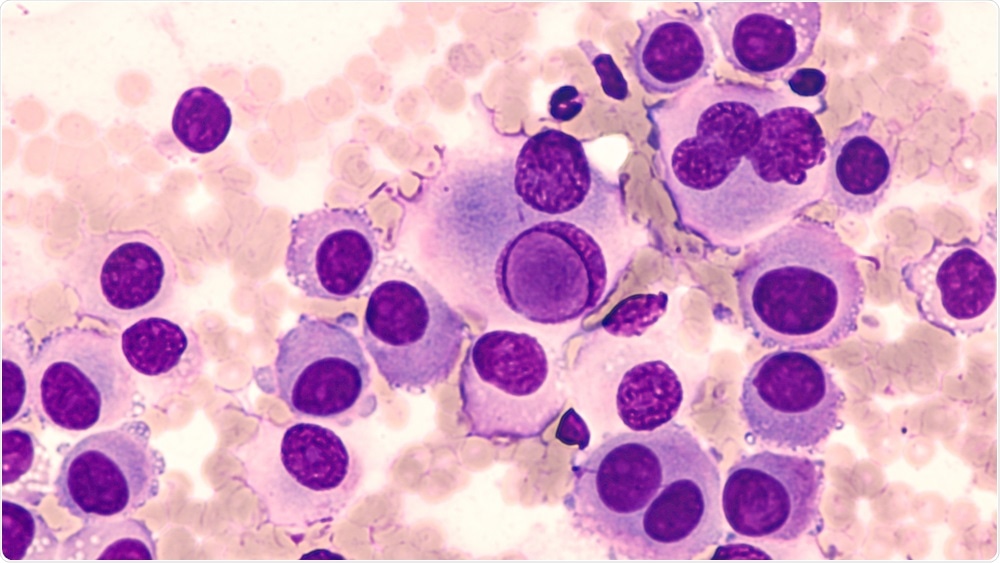A team of scientists at the Far Eastern Federal University (FEFU), Russia, the University of Geneva, Switzerland, Minjiang University, and Fuzhou University, both in China, have discovered that the WDR74 protein plays a vital role in metastasis progression in lung cancer and melanoma primary tumors.

Image Credit: David. A. Litman/Shutterstock.com
The research, which was published in the journal Cancer Letters and Oncogene, details how the team increased WDR74 function with the impact of initiating increased activity in cancer cells. Importantly, they also noted that when the function was dropped, the cancer cells became susceptible to chemotherapy as they failed to metastasize.
Identification of proteins involved in metastasis
Metastasis describes the spread of cancer from the original site to other tissues and organs of the body. While there are a few scenarios in which cancer that has metastasized can be cured, it can usually only be treated to decelerate cancer’s growth rate.
The prognosis doesn’t tend to be good for those with metastatic cancer, often timelines of years or even months are projected.
When cancer cells free themselves from the primary tumor they enter the bloodstream or lymphatic system. The introduction of cancerous cells into the body’s transportation systems allows them to spread to new locations and develop new, secondary tumors, this is the process of metastasis.
Luckily, only a fraction of a percent of tumor cells are able to metastasize. Scientists had wondered what makes a tumor cell different that allows it to metastasize when the majority don’t. Several years ago a group of scientists based in China, at Fuzhou University, embarked on a project to explore what this difference was that allowed a small percentage of circulating tumor cells to be “successful" in metastasizing.
They ran a proteomic analysis on tumor cells and were able to highlight certain proteins that are highly expressed in metastatic cells that are active, and missing in those that are passive.
WDR74 was one protein that was identified in this study. In circulating tumor cells deemed as “successful”, WDR74 was found to be expressed in levels twice as high as in the original tumor. This work inspired the current study where scientists hypothesized that WDR74 may be the key to helping circulating tumor cells metastasize.
Revealing the role of WDR74 will be significant in developing more effective treatments for cancer, specifically in preventing and treating metastatic cancer, which has a poor prognosis.
How WDR74 protein impacts cancer progression
The international team of researchers set up two simultaneous studies where they investigated the activity of WDR74 in both lung cancer and in melanoma. Both experiments were set up the same, where the WDR74 protein was switched off using RNAs to remove or reduce the protein using the CRISPR/Cas9 technique.
The cells were then monitored for activities such as proliferation, cell cycle, colony formation, and ability to migrate and grasp in body tissues. In addition, researchers also increased levels of WDR74 and observed how this affected cell activities.
The vital role of WDR74 in cancer metastasis was confirmed by both studies. The presence of the protein increases the circulating cancer cells’ oncogenic properties. These findings were confirmed in vivo in rodent studies.
Developing drugs to target WDR74
The researchers conclude that WDR74 affects the circulating tumor cells in at least two ways. The first is that in melanoma, WDR74 influences the levels of other proteins, such as p53.
In lung cancer, they found that WDR74 regulates WNT signaling pathways which are known to be active in tumor cells.
Researchers summarized that WDR74 governs the levels of ribosomal protein RLP5 that are available, RLP5 then regulates the levels of MDM2 protein ligase which initiates the breakdown of the p53 protein. What scientists don’t know is what mechanism governs the expression of WDR74.
The results of this study are important because they provide another avenue to explore for developing new, more effective treatments for cancers that lack therapy methods and are poorly understood. The next stage of research will focus on developing drugs that target WDR74 in an attempt to prevent cancer from metastasizing.
Source:
Scientists have identified protein involved in progression of lung cancer and melanoma. Available at: https://eurekalert.org/pub_releases/2020-02/fefu-shi021420.php
Journal references:
Li, Y., Chen, F., Shen, W., Li, B., Xiang, R., Qu, L., Zhang, C., Li, G., Xie, H., Katanaev, V. and Jia, L. (2020). WDR74 induces nuclear β-catenin accumulation and activates Wnt-responsive genes to promote lung cancer growth and metastasis. Cancer Letters, 471, pp.103-115. https://www.sciencedirect.com/science/article/abs/pii/S0304383519306172?via%3Dihub
Li, Y., Zhou, Y., Li, B., Chen, F., Shen, W., Lu, Y., Zhong, C., Zhang, C., Xie, H., Katanaev, V. and Jia, L. (2020). WDR74 modulates melanoma tumorigenesis and metastasis through the RPL5–MDM2–p53 pathway. Oncogene. https://www.nature.com/articles/s41388-020-1179-6#citeas